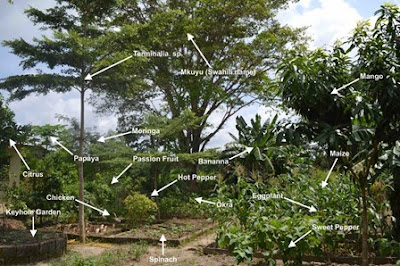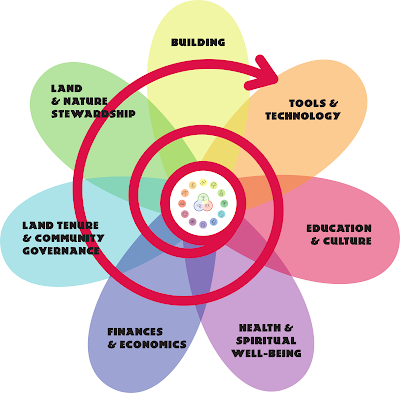PDC LESSON 3.3 SEEDS – HYBRIDISATION
PERMACULTURE COURSE AGRO-ECONOMY
PDC LESSON 3.3 SEEDS – HYBRIDISATION
Hybridisation
means
the crossing of two widely different varieties and the result is that traits
from both the parent plants may be of advantage to the new hybrid variety. The
hybrid will then display what is known as hybrid vigour and have a mixture of
qualities that will enable it to grow more successfully than either of its
parents. However, this hybrid vigour is reduced in subsequent generations.
In the seed
trade this involves a deliberate narrowing of the gene pool.
That means
that hybrid seed needs artificial support to perform well. The result is that
the genetic variability that gives plants their adaptability to local climate
conditions and pests and disease is robbed from them.
Plants are
being bred to select for uniform ripening, for fast growth and for size. This
is supported using artificial fertilisers that force- feed these plants to make
them grow fast. The soil is super- phosphate to support this accelerated growth
on soil that is devoid of soil life and minerals.
A lot of our
food supply is now becoming genetically engineered to suit the requirements of
the chemical companies’ bank accounts. The spiel for feeding the world’s poor
is not valid as the third world farmer who always saved his seed for the next
crop will not be able to do so anymore, as the G.M. seed has been either
patented or designed to be infertile for the next generation of plants. He will
then need to buy his seed every time he wants to plant a crop. It won’t be
cheap either!
The third
world farmer can’t even afford the chemicals he needs to grow such seed. This
is how corrupt the whole situation is becoming.
Text
from the roots, Elisabeth Ferkonia (Aus.) PDC studied with Bill Mollison,




Comments
Post a Comment